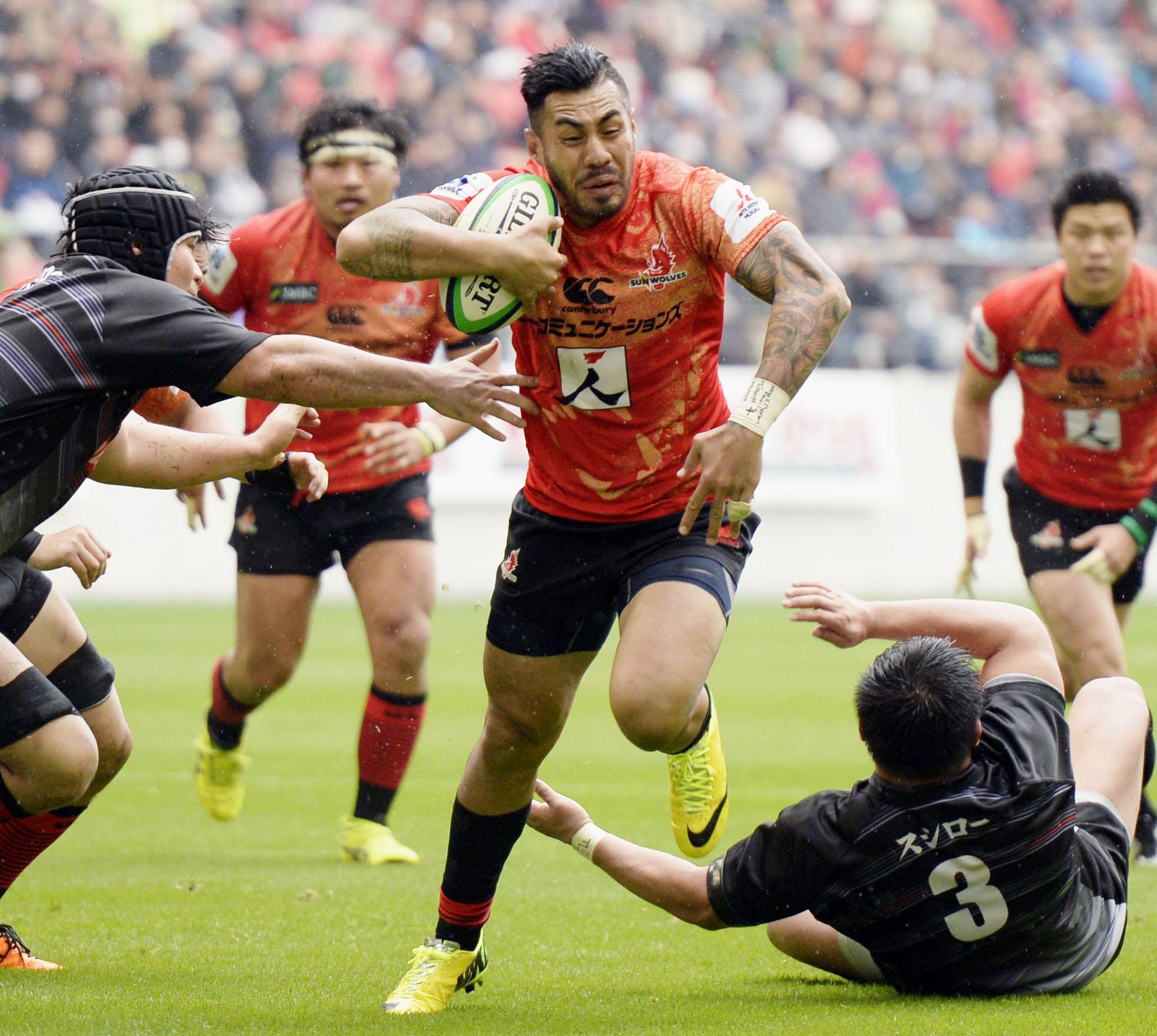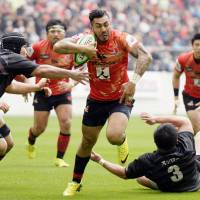A new era for Japanese rugby is set to kick off Saturday with the Sunwolves playing their first game in the expanded Super Rugby competition against the Johannesburg-based Lions in Tokyo.
For those who see the glass as being half-full it is an opportunity for Japan to build on the rugby boom that followed the Brave Blossoms' exploits at last year's Rugby World Cup and a chance for players to bridge the gap between Top League and test-match rugby.
"In an ideal world, in years two, three and four, going to Japan will be a big challenge. Hopefully they will be a force at some stage in the future," New Zealand Rugby's head of professional rugby, Neil Sorensen, was quoted as saying by the Associated Press.
But for those of a more pessimistic (some would say realistic) nature, Japan's entry into the Southern Hemisphere competition is a problem-filled mess that could burst the rugby bubble.
As the only northern hemisphere side in the competition — which has been expanded to 18 teams from 15 with the South African Kings and Argentine Jaguares also joining — Japan's entry has caused scheduling headaches at home. The 2015-16 Top League season has been shortened and discussions are ongoing as to how the domestic season should be organized in future years.
A complicated fixture list, described by Wallabies legend David Campese as "a total mess," sees the Sunwolves grouped in one of the two South African conferences and forced to play three of their eight home games in Singapore.
Not only does that put a great strain on players in terms of time spent traveling, but it also makes it difficult to build a fan base.
And there has also been the embarrassing saga of many top-name Japan players turning down the chance to play for the new franchise.
"As I've said all along, in the first year there's going to be hurdles, struggles and learnings," was head coach Mark Hammett's take on the challenges ahead.
Hammett was only named coach in December as the franchise struggled to attract players and coaches, following the decision by Eddie Jones in August to step down as the Sunwolves' director of rugby.
Jones made it very clear he was not happy with the off-field professionalism of the new franchise, and his comments have been backed up by a number of players who have opted to play elsewhere.
Michael Leitch, Fumiaki Tanaka, Ayumu Goromaru, Male Sa'u, Hendrik Tui, Kotaro Matsushima and Hiroshi Yamashita will be playing for other Super Rugby sides in the months ahead, while Kensuke Hatakeyama and Amanaki Lelei Mafi are plying their trade in the English Premiership.
Disappointingly, that means just 10 of the squad that shocked the world with their performances at RWC 2015 will suit up for the Sunwolves.
The delay in naming a coach also meant big-name overseas marquee players turned down the chance to sign for the new side, leaving Hammett with a 39-man squad that contains just seven players with Super Rugby experience.
In the forwards, captain Shota Horie (formerly with the Rebels), ex-Reds back-row forward Ed Quirk and U.S. Eagle Andrew Durutalo will be key figures, while in the backs, Samoa flyhalf Tusi Pisi (who has played for both the Crusaders and Hurricanes) will pull the strings and hopefully allow Harumichi Tatekawa and Akihito Yamada to build on their good performances at last year's Rugby World Cup.
While the top side could be somewhat competitive, the lack of depth is likely to be exposed — as Jones found out on a number of occasions with the Brave Blossoms when resting first-choice players.
The only good news for Hammett and his team is that the complicated draw means they avoid playing teams from the New Zealand conference, which is traditionally the strongest.
But that seems not to have changed what the players expect from a difficult first year.
When asked what he thought would be considered a successful season, one member of the squad said "one win would be good in our first year."
In addition to the new four-conference system, there are a number of other changes in this year's competition, including a change to the try-scoring bonus point rule.
The bonus, previously awarded only to teams scoring four tries, will now be added when a side finishes three tries ahead of their opponent.
"By implementing this change we expect to see more attacking and competitive rugby, as teams will be asked to keep their foot down for the full 80 (minutes) in order to claim the try-scoring bonus point," said Andy Marinos, chief executive of southern hemisphere rugby's governing body SANZAAR.




